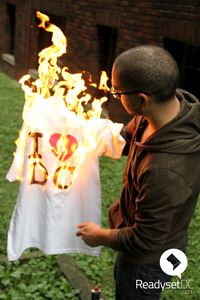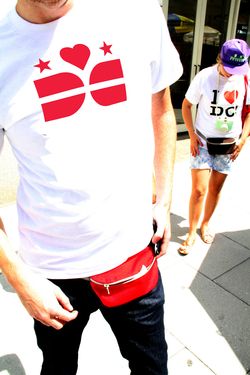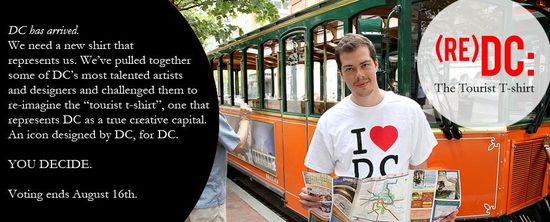
One of their best selling icons is a t-shirt which is a simple copy of New York's well known logo – "I Love New York" – with the city name replaced. It is just one symbol of what I have seen spending most of my childhood growing up in DC area: that it can be a difficult city to adopt as your own. Many people live in neighboring Maryland or Virginia, the vibe of the city can shift based on who gains political power and there has always been a large expat population working 2-5 year stints at NGOs or embassies locally.
Back in August of this year, at the start of the Fall tourism season for Washington DC, two young D.C.-based artists Brandon Bloch and Justin Young thought the city needed a stronger identity, and felt that the solution to this challenge could be design based. So they invited their design friends to participate in a "curated competition" to create a logo that could better represent the city.

This campaign certainly helped to start defining a logo identity for the city that all of us locals would love to see … but the bigger idea to take away is that sometimes crowdsourcing misses the chance to really value every contribution you get – a curated competition might inspire much more passion among those who participate, as well as those who will see the final result.







WE RECENTLY REMOVED COMMENTING - LEARN WHY HERE >